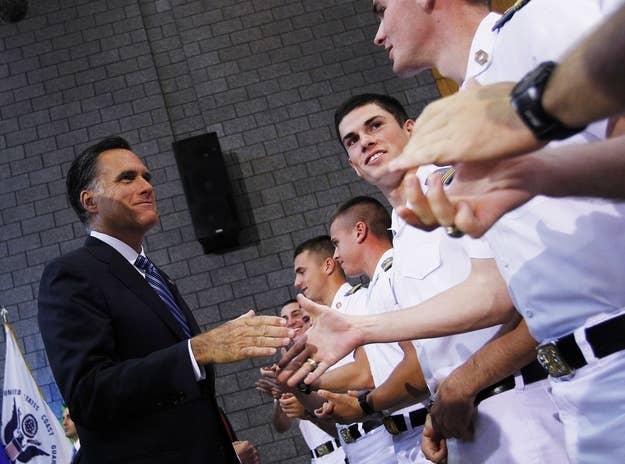
In his latest step toward the political center Monday, Mitt Romney used a foreign policy speech in Virginia to reiterate a tack he's appeared to settle on when it comes to describing President Obama's record: Romney's not mad, he's just disappointed.
It hasn't always been this way. Facing a barrage of negative ads from the Obama campaign over the summer, Romney abandoned his characterization of the president as a "nice guy" who was simply overwhelmed by the duties of his office. He replaced it with harsher rhetoric casting the incumbent as a radical — reflecting, aides said, his real anger at the president.
That Romney campaign narrative — designed, aides said at the time, to motivate the Republican base — reached its climax last month with a hastily-released, sharply-worded statement blasting the president's handling of the terrorist attacks in Libya:
“I’m outraged by the attacks on American diplomatic missions in Libya and Egypt and by the death of an American consulate worker in Benghazi. It’s disgraceful that the Obama administration’s first response was not to condemn attacks on our diplomatic missions, but to sympathize with those who waged the attacks.”
But when Romney took the stage at the Virginia Military Institute Monday, it was in a very different context of the race. After a debate victory last week that centered on a full-throated appeal to moderates, Romney toned down the outrage, dropped accusations that Obama "sympathize[d]" with terrorists — and allowed that his opponent had good intentions.
"I know the President hopes for a safer, freer, and a more prosperous Middle East allied with the United States. I share this hope," Romney said. "But hope is not a strategy."
He replaced righteous anger with sober disappointment, and sought to give persuadable voters permission to feel the same way about the president's foreign policy failures. The most glaring example of this tone change was Romney's handling of the Libya attacks.
"I want to be very clear: The blame for the murder of our people in Libya, and the attacks on our embassies in so many other countries, lies solely with those who carried them out—no one else," he said. "But it is the responsibility of our President to use America’s great power to shape history — not to lead from behind, leaving our destiny at the mercy of events. Unfortunately, that is exactly where we find ourselves in the Middle East under President Obama."
